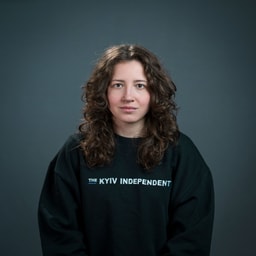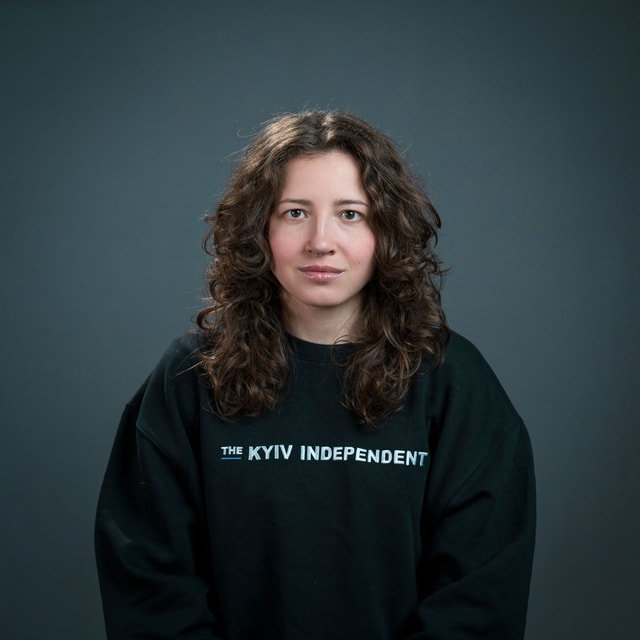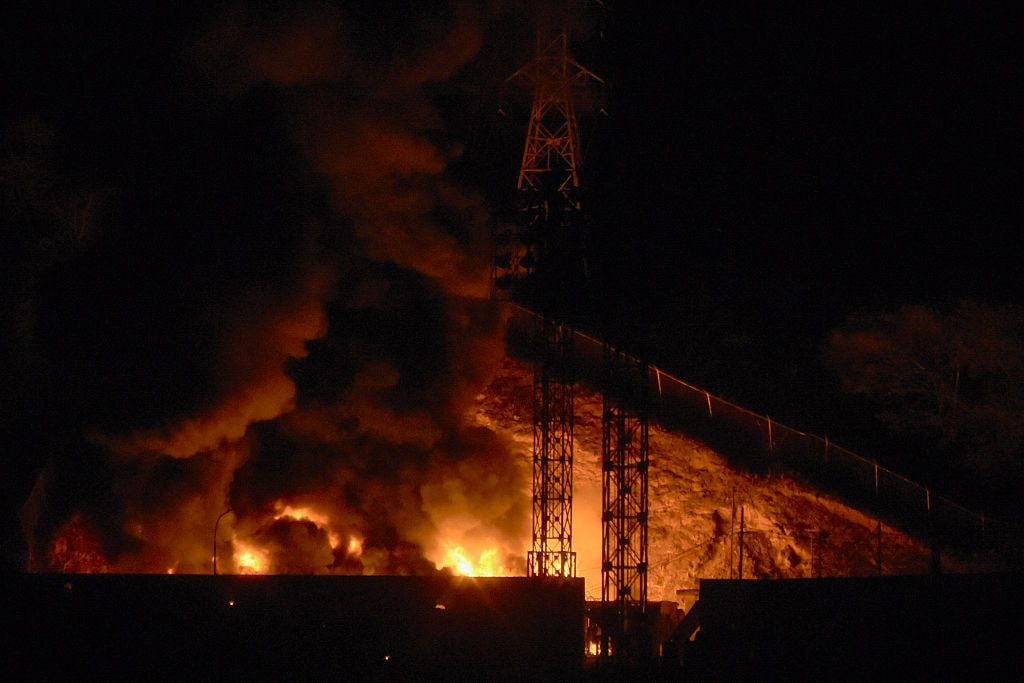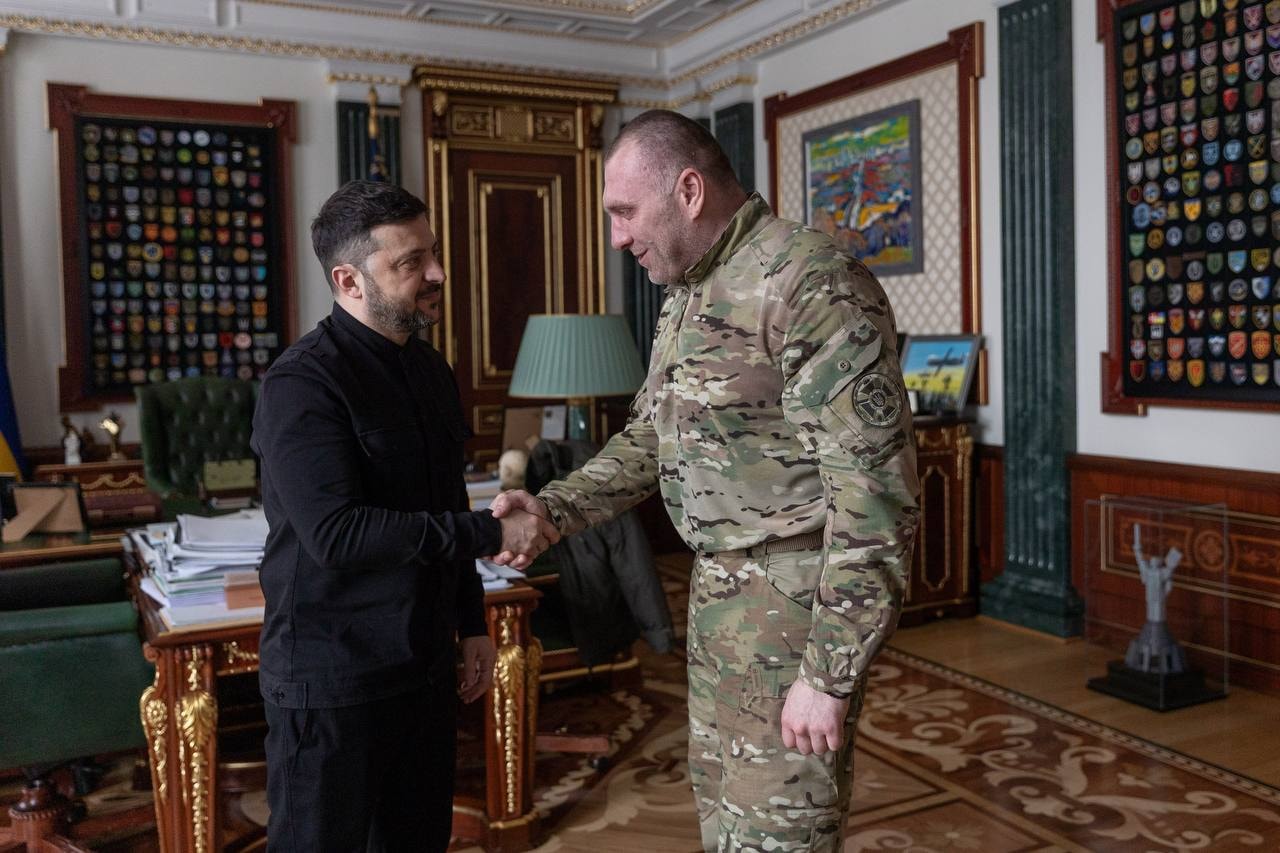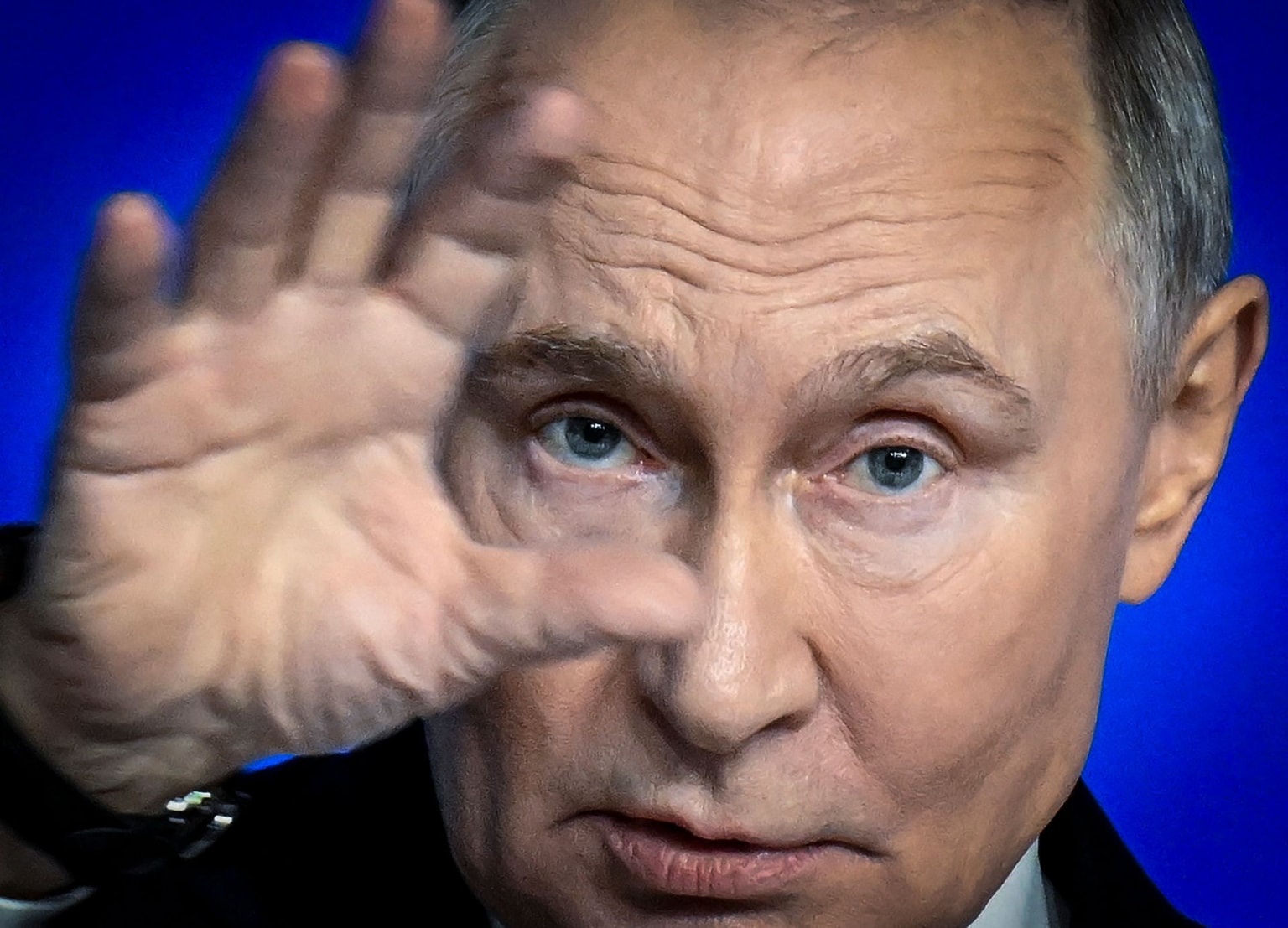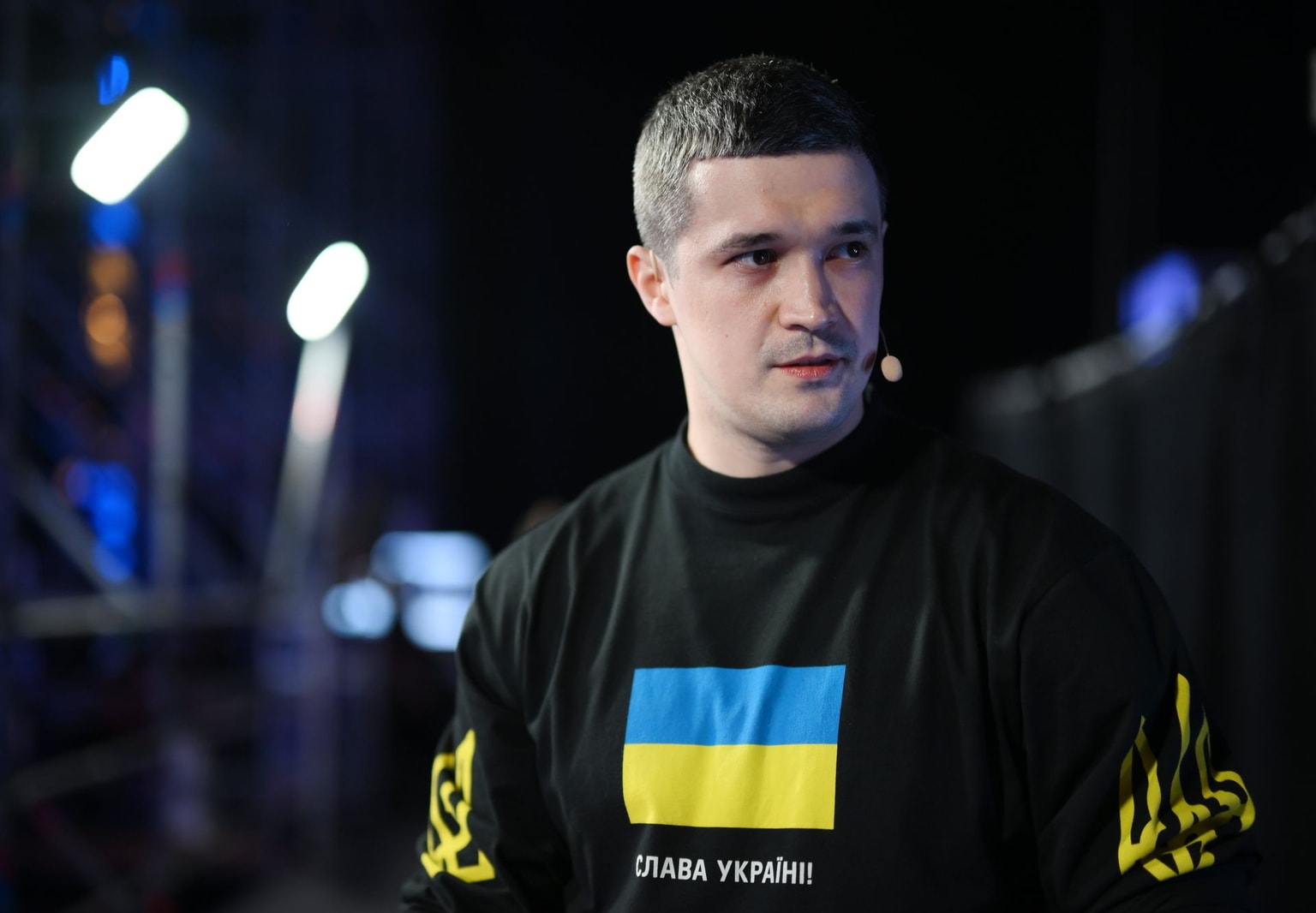Q&A with Brian Bonner, ex-chief editor of Kyiv Post

Brian Bonner was the leader and the face of the Kyiv Post for 14 years.
A U.S. journalist, he first briefly worked at the newspaper in 1999, then returned in 2008 and stayed.
He dedicated his life to protecting independent, high-standard journalism. His newsroom was a launchpad for generations of high-achieving reporters.
On Nov. 8, Bonner was fired along with the rest of his 50-member staff by the Kyiv Post owner, Odesa real estate tycoon Adnan Kivan. The Kyiv Post ceased publication. The staff considers it retaliation for opposing the owner’s attempts to interfere in the editorial work by appointing a controversial top editor.
The ex-Kyiv Post editorial team moved on to launch a new English-speaking media outlet, the Kyiv Independent. Bonner decided to retire after 45 years in journalism.
The Kyiv Independent talked to Bonner about the shutdown, the Kyiv Post legacy, and his plans.
The Kyiv Independent: When you first joined the Kyiv Post (KP), did you expect you would spend 14 years of your life working here?
BB: No, not at all. After I joined the KP in 1999, we had a budget crisis so I decided to leave for the company to be able to cut my salary. Then I went back to America, but it was always in the back of my mind, it was unfinished business, “If I ever got the chance to be back in the KP again, I would take it.” And lo and behold, Jed Sunden, the owner and the founder of the KP, who I’d worked for in 1999, came and said, “We need you to come back.” Even though I had a great job in Washington D.C. with a great anti-tobacco organization promoting public health policies worldwide, I had to answer the call to the KP. My life was not gonna be satisfied unless I went back.
KI: Looking back at these 14 years, what are you most proud of?
BB: Of course, the highlights were when we got the best readership and the best international recognition, when we were right here for the (EuroMaidan) Revolution, day after day, not knowing how it was going to end. And then we were right here for the start of Russia's war.
I’m also really proud that nobody can identify a person, an issue that we were afraid to touch. That person doesn’t exist. Doesn’t matter what position they held or how much power they had. We gave them the coverage -- tough, fair, sometimes not so tough — that they deserved.
Journalists are my heroes because they’re overworked, underpaid and they’re doing things for the public good, and we had that. And I’m very proud of the people who came through here and they went on to do great things. They achieved more in journalism than I ever did. But I was fine with it. I was happy being the editor of the KP.
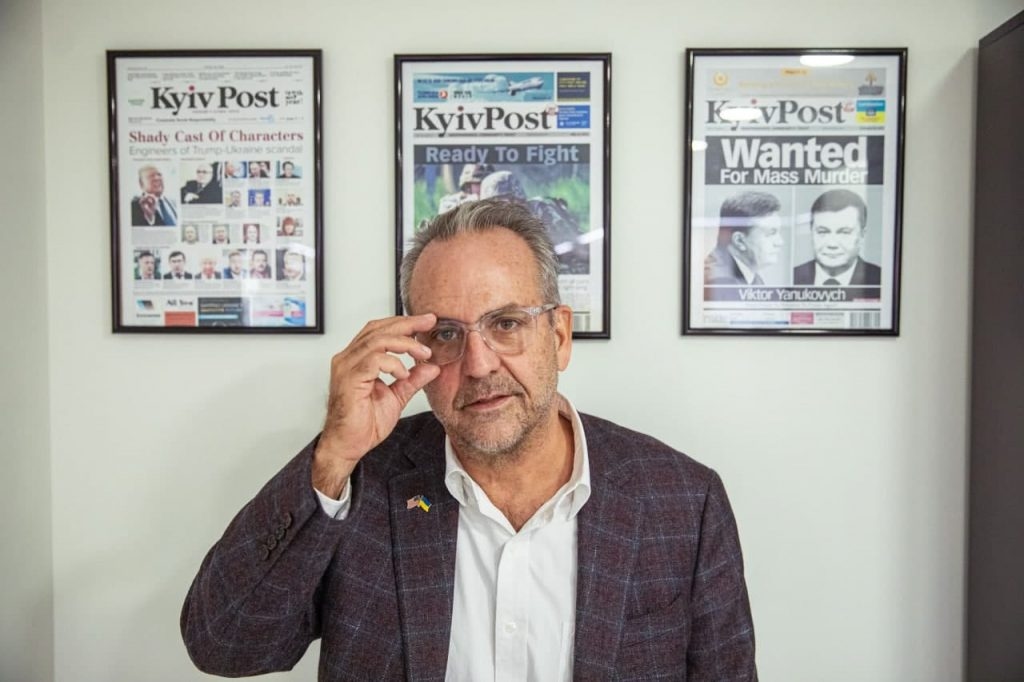
KI: For many people, there is no KP without Brian Bonner. What did KP mean to you?
BB: I was fired three times so I never believed that I was the KP. If by that you mean upholding high standards of journalism, ethical standards, editorial independence — then I’m happy to be part of the KP legacy. I just happened to be here longer because I love this paper. I probably would have worked for nothing in this position if I could have.
KI: What did it feel like to tell the 50-member staff that they are fired and the KP is shut down?
BB: I had seen signs from the beginning (since Kivan bought the KP in 2018) that it could come to this end but I always tried to finesse… I always tried to weave and bob and compromise without sacrificing our principles. But I always had this motto, “live to fight another day.”
It was very painful. The captain goes down with the ship, the general gets killed in battle with all his troops. I think there’s a lot of things I don’t know about that went into this decision, there’s a lot of factors. The KP at the end of the day was more trouble than it’s worth, and we weren’t on the same page (with the owner) in terms of what it meant to be editorially independent.
KI: Why did you decide to retire?
BB: I have been in journalism for 45 years. That’s enough. Doesn’t matter when you stop, you can always write more stories, better stories, but now it’s time to stop for me, for now. I don’t know if it will last forever. There are other forms of writing, there are other outlets, other ways to contribute to society. But I am going to miss this: I have these phantom pains, like, shouldn’t I be posting, editing, writing something.
KI: What other forms of writing? What are your plans?
BB: I need to clean my brain of social media and news and delve into books and other things. I don’t know how long it will last but I have been doing deadlines for a while. Just the print edition, 14 years of it means I have done nearly 700 print issues, plus special supplements. That’s a lot of extra nights.
KI: Do you think it’s important for Ukraine to have a local international voice?
BB: Of course. And our subscriber database shows that. All the top (international) reporters subscribed to us for a reason — they found it valuable. It is not enough and it is not right to cover Ukraine from Moscow or from the U.S. You have to be here, to feel the rhythm and to get the story right. Too much of the news about Ukraine is off-base because the reporters aren’t living here or don’t speak the language. For Ukraine, unfortunately, for it to make international news it usually takes some tragedy or corruption. But Ukraine is much more, and who is going to tell the full story? It is a beautiful country and there is a lot of vibrancy, dynamism here — you have to live here to tell that story.
KI: Can the Kyiv Independent’s team count on your advice?
BB: Oh yes. I think it will be difficult. I think 10-20 years ago I would have the energy to fight but now I don’t. But I also think that life is very strange because it can take very big unexpected turns, and some of them can be for the better. There’s an opportunity in the market for you guys to be the voice of independent journalism. The puzzle of how to finance independent journalism is out there for your generation to solve. That is going to be the interesting challenge that is ahead. You guys are some of the best minds in journalism, and with Jnomics working on the business side, if anybody can figure it out, you can.
